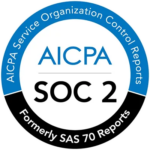Freight claims are an essential, inevitable, and often time-consuming part of a shipper’s landscape. When freight gets damaged, contaminated, delayed, or lost in transit, shippers or consignees must file a claim to get reimbursed. By law, carriers are responsible for covering valid freight claims. The Carmack Amendment is crucial legislation guiding this process for shippers and carriers alike.
In today’s unpredictable logistics ecosystem rife with disruptions, freight claims are rising due to the sheer volume of products shipped. A study from uShip found 21 percent of U.S. adults who purchased a large item — such as a sofa, mattress, or treadmill — said it was damaged when it arrived, and 15 percent said the item never arrived. Tom Burke, CEO of TCompanies, estimates that nearly one-fourth (or 9.4 million) of all containers and trailers used to transport goods in the U.S. annually are damaged. More damage means more potential profit loss and more freight claims.
However, filing and winning a freight claim is complicated. It’s more vital than ever for shippers to have an in-depth understanding of freight claims and the rules that govern them. Knowing the ins and outs of the Carmack Amendment and having an expert partner to help resolve freight claims is especially crucial for any shipper.
The History of the Carmack Amendment
The Carmack Amendment, passed by Congress in 1906, is part of the Hepburn Act amendment to the Interstate Commerce Act of 1877. The Carmack Amendment, which deals with interstate carrier liability, was later extended to motor carriers by the Motor Carrier Act of 1935. The Carmack Amendment limits the liabilities of carriers to loss or damage of the property itself. Before the Carmack Amendment, businesses transporting goods across state borders were subject to state laws regulating the liabilities of shipping companies. The Carmack Amendment made it possible to standardize regulations applied to interstate shippers and interstate carriers from claims made by companies in excess of the value of the goods.
One far-reaching aspect of Carmack is that it does not require the shipper to provide proof of negligence, only that the goods were damaged. As a result, carriers are liable for damage, no matter the cause. However, shippers must verify the following:
:
- They can quantify the damage amount.
- The items were in good condition when picked up.
- The shipment was damaged after the carrier received it.
Carriers may be exempt from damage claims under particular circumstances, such as damages caused by acts of God, the government, burglars, or inherent vice, meaning something is unstable about the product, like it was highly flammable.
3 Must-Know Aspects of the Carmack Amendment
For many shippers, the legalese of the Carmack Amendment can take a lot of work to assimilate. It didn’t help that lawmakers added several exceptions and limitations after the Great Depression. It’s no wonder that shippers are frustrated trying to understand it. The right partner can help assuage that confusion with cloud-based software that provides documentation storage, helps accelerate the communication between sides, and administers deadline management to ensure everything stays up to date. Let’s look at three aspects of the amendment that will help you understand Carmack better.
1. Limited Liability
The maximum recovery available for a shipper under the Carmack Amendment is the actual value of the property damaged in transport. A shipper’s attorney fees are generally not recoverable. The Carmack Amendment allows a carrier to limit its liability. To do so, a carrier must:
- Maintain a tariff within the prescribed guidelines.
- Obtain the shipper’s agreement on his choice of liability.
- Give the shipper a reasonable opportunity to choose between two or more levels of liability.
- Issue a receipt or bill of lading before moving the shipment.
2. Minimum Claim Period
The Carmack Amendment requires all shippers to file claims for loss or damage in writing within nine months from the date of the loss. It also states that shippers seeking civil action must do so within two years of the date the carrier provides written notice that they have disallowed any part of the specified claim.
One particular rule of the Carmack Amendment states that an offer of compromise does not mean the disallowance of any part of the claim. There are exceptions, but carriers must inform claimants in writing that such part of the claim is disallowed and the reasons why.
3. Federal Preeminence Over State Claims
The Carmack Amendment preempts all state and common law claims and is the sole determinant in freight claims cases. State and common law causes of action held to be preempted by the Carmack Amendment include:
- Negligence
- Breach of contract
- Breach of an insurance contract
- Breach of contract of carriage
- Conversion
- Intentional misrepresentation
- Negligent misrepresentation
- Negligent infliction of emotional distress
- Intentional infliction of emotional distress
- Outrage
- Fraud
- Interference with economic advantage
- Various state consumer protection laws
However, laws vary by jurisdiction regarding what types of claims are preempted.
Let FreightClaims.com Be Your Freight Claims Guide
The Carmack Amendment allows a shipper to recover costs from a carrier for damage to a shipment that resulted during interstate transportation. However, making a freight claim takes work and can be daunting. Expert guidance can simplify the process, which is where FreightClaims.com comes in. Easy-to-use, cloud-based software designed by the dedicated experts at FreightClaims.com can help you stay on top of freight claims and see them through to the end. Request a demo from FreightClaims.com today.


